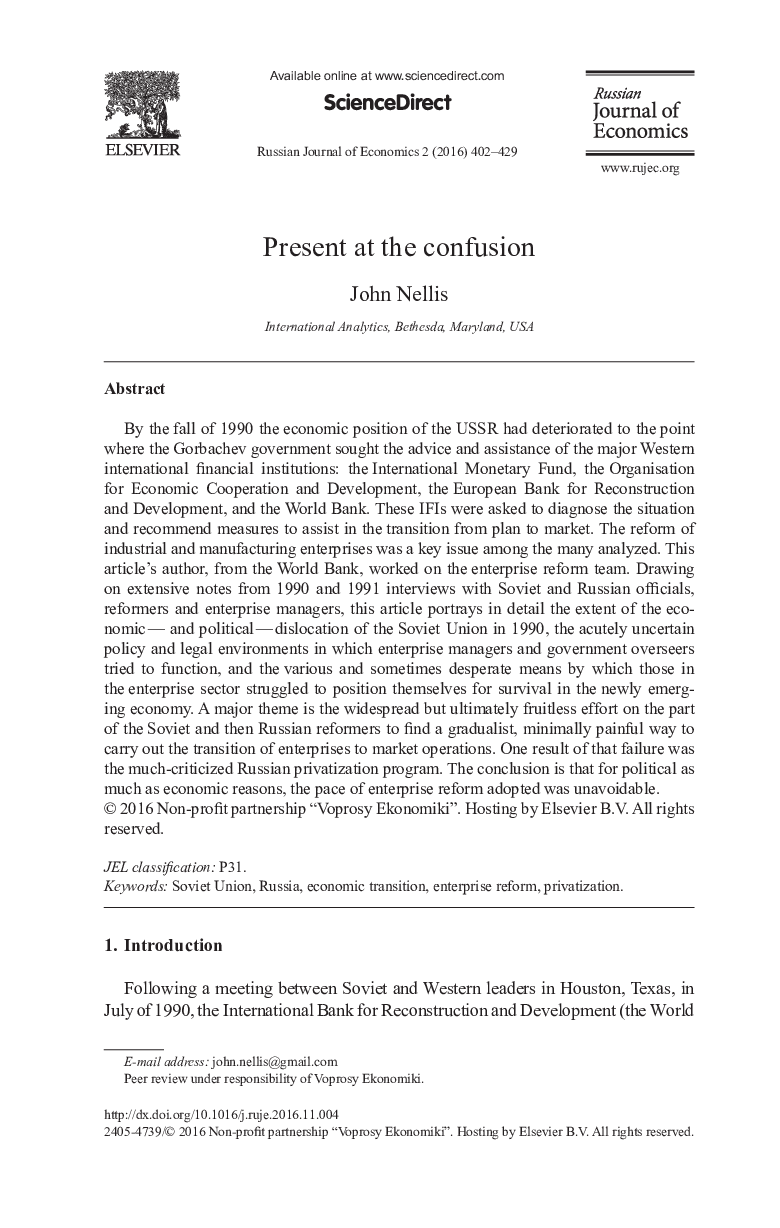| Article ID | Journal | Published Year | Pages | File Type |
|---|---|---|---|---|
| 7388622 | Russian Journal of Economics | 2016 | 28 Pages |
Abstract
By the fall of 1990 the economic position of the USSR had deteriorated to the point where the Gorbachev government sought the advice and assistance of the major Western international financial institutions: the International Monetary Fund, the Organisation for Economic Cooperation and Development, the European Bank for Reconstruction and Development, and the World Bank. These IFIs were asked to diagnose the situation and recommend measures to assist in the transition from plan to market. The reform of industrial and manufacturing enterprises was a key issue among the many analyzed. This article's author, from the World Bank, worked on the enterprise reform team. Drawing on extensive notes from 1990 and 1991 interviews with Soviet and Russian officials, reformers and enterprise managers, this article portrays in detail the extent of the economic - and political - dislocation of the Soviet Union in 1990, the acutely uncertain policy and legal environments in which enterprise managers and government overseers tried to function, and the various and sometimes desperate means by which those in the enterprise sector struggled to position themselves for survival in the newly emerging economy. A major theme is the widespread but ultimately fruitless effort on the part of the Soviet and then Russian reformers to find a gradualist, minimally painful way to carry out the transition of enterprises to market operations. One result of that failure was the much-criticized Russian privatization program. The conclusion is that for political as much as economic reasons, the pace of enterprise reform adopted was unavoidable.
Related Topics
Social Sciences and Humanities
Economics, Econometrics and Finance
Economics and Econometrics
Authors
John Nellis,
